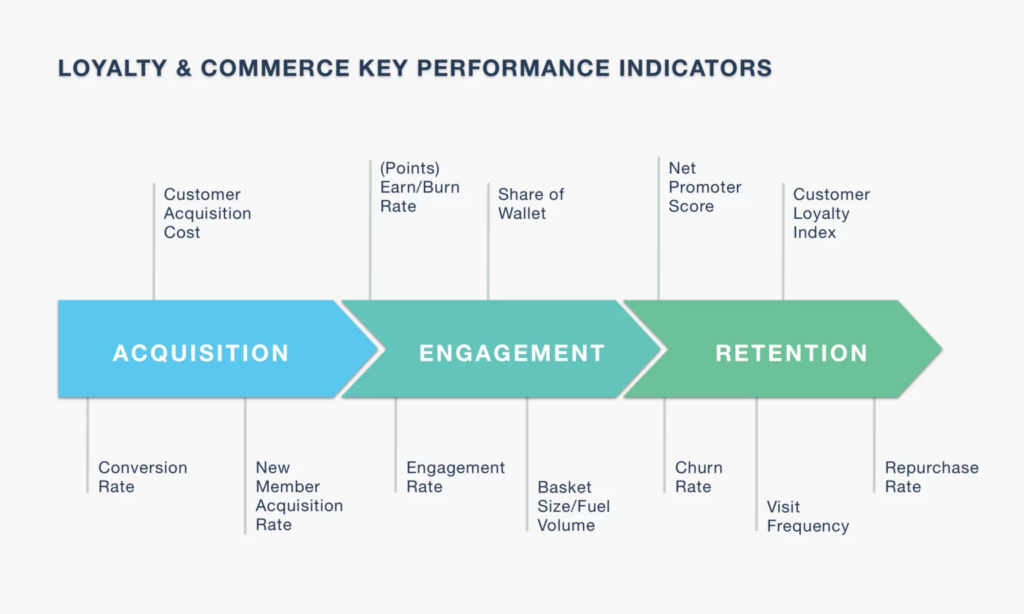With the battle for share of wallet more fierce than ever, retailers have to ensure that loyalty and commerce programs are performing at a consistently high level. To drive better business outcomes in this competitive environment, retailers need aggressive goals paired with an effective analysis of their program’s data.
In this two-part blog post we will cover the following topics:
- The Importance of Loyalty & Commerce Key Performance Indicators
- Customer Lifetime Value: The Ultimate Loyalty KPI
The Importance of Loyalty & Commerce Key Performance Indicators
Key Performance Indicators (KPIs) are a great way to measure the health of your loyalty and commerce programs but need to be properly implemented and analyzed to make sure your program is driving the desired business outcomes.
What are Loyalty KPIs?
KPI stands for Key Performance Indicator. It is an objective measurement to evaluate a program’s performance against its set goals. KPIs may consist of a single metric, such as new Member Acquisition Count, or include multiple, more complex metrics, such as Member’s Share of Fuel Wallet or increase in Member’s Share of Fuel Wallet Over Time.
Importance of Loyalty & Commerce KPIs
KPIs help align stakeholders by providing objective, standardized measurements of the effectiveness of your programs. They help you understand how your customers shop, how many of their purchases are with your brand versus your competitors (Share of Wallet), and how each customer spends each wallet. They also provide insights into where to increase investments, where to sustain investments, and where to decrease or stop investing when it comes to your loyalty and commerce program initiatives.
Which KPIs matter most?
The customer journey can be broken down into three phases: acquisition, engagement, and retention. To measure the effectiveness of your program, you need to look at an array of metrics that measure each of these phases.
Here are some KPIs Stuzo believes are important to track:

Keep in mind, there are many more KPIs that can be measured to produce meaningful business insights. While the particular KPIs depend on the desired business outcomes, analyzing KPIs provides an important, data-based standard to evaluate the success of programs–and hold people, vendors, and technologies accountable.
If you’d like to learn more about how KPIs help you measure loyalty to drive business outcomes, contact us to request an Insights Briefing with our Insights team.
Next up: Customer Lifetime Value: The Ultimate KPI



